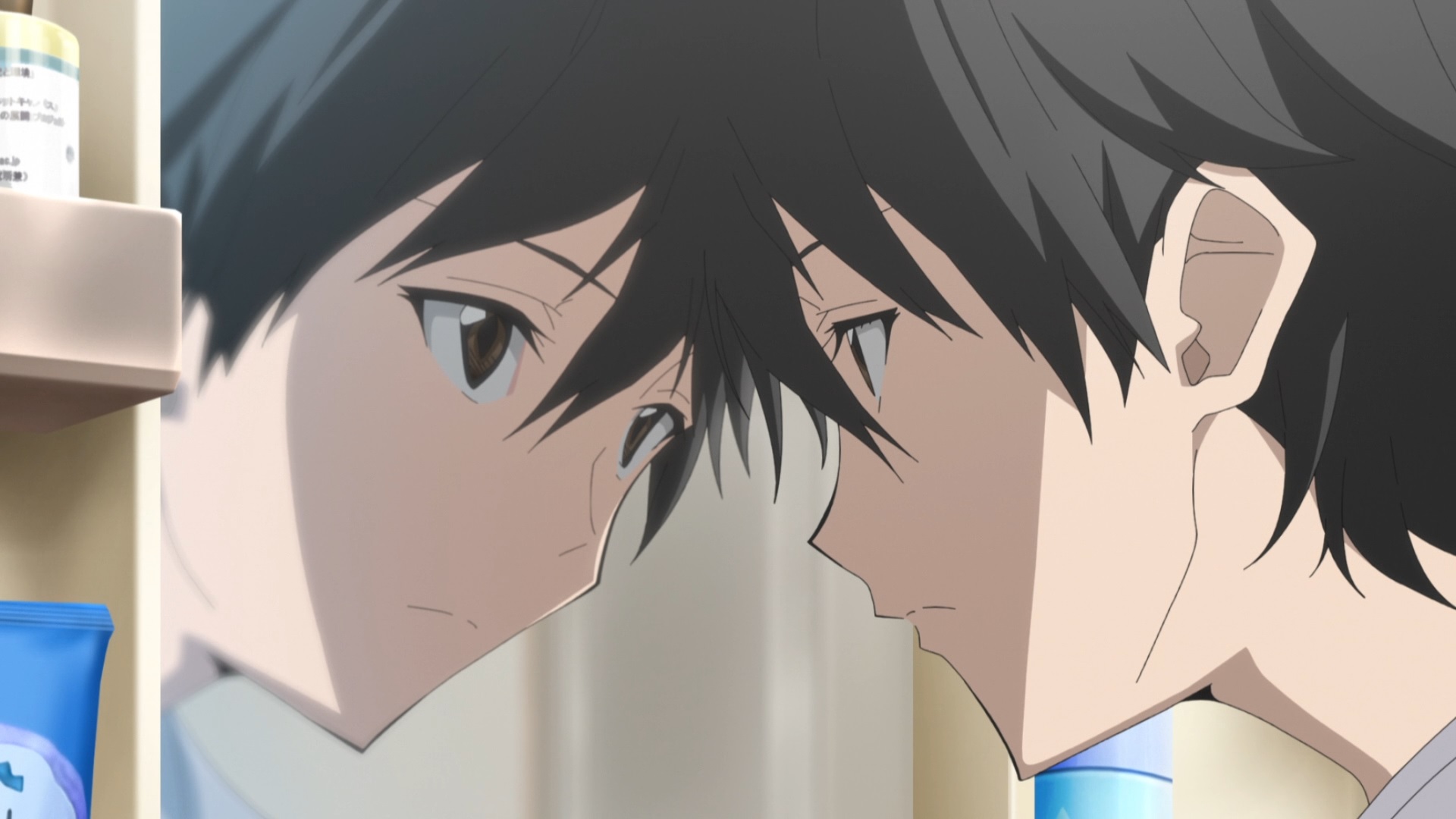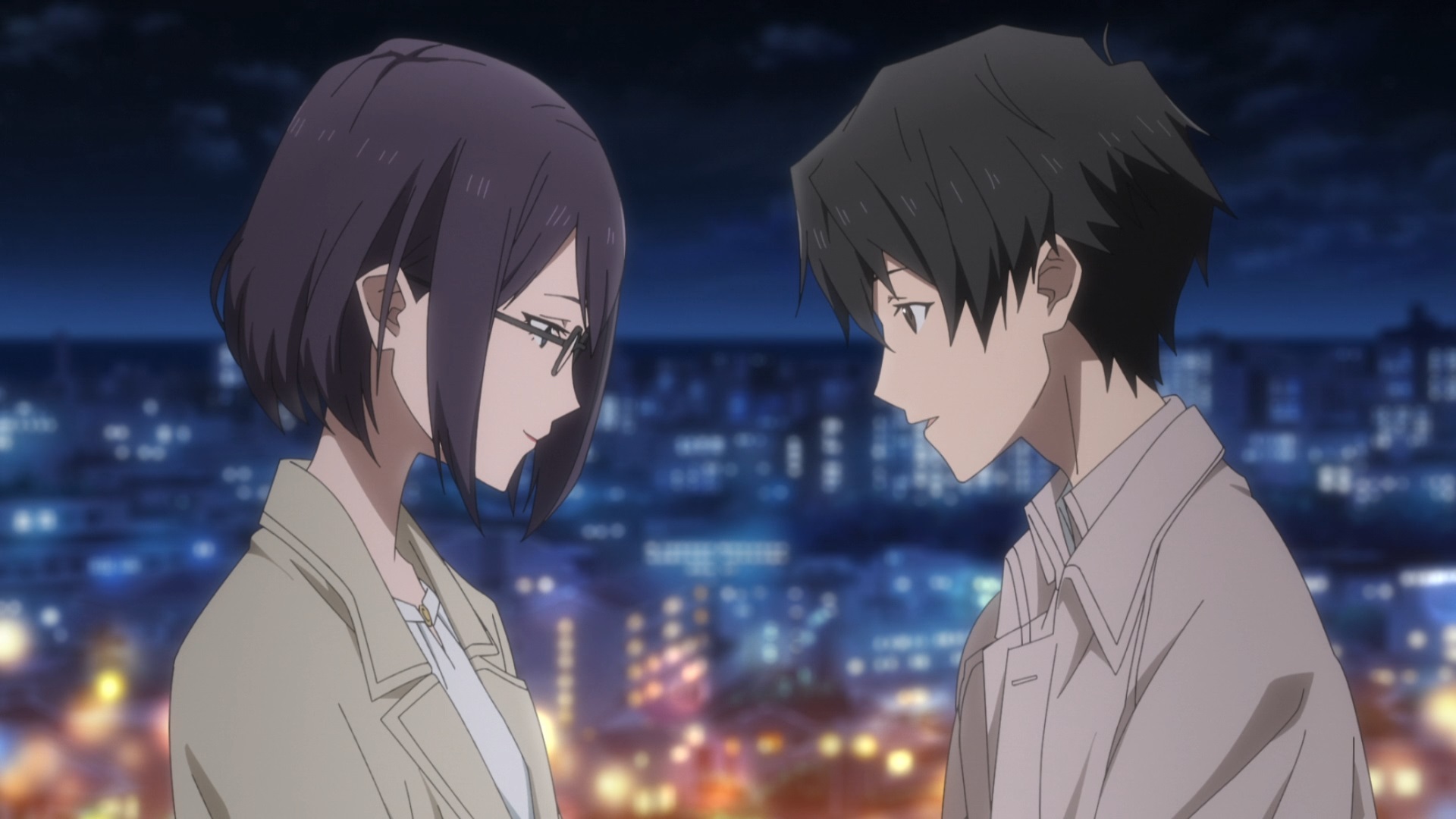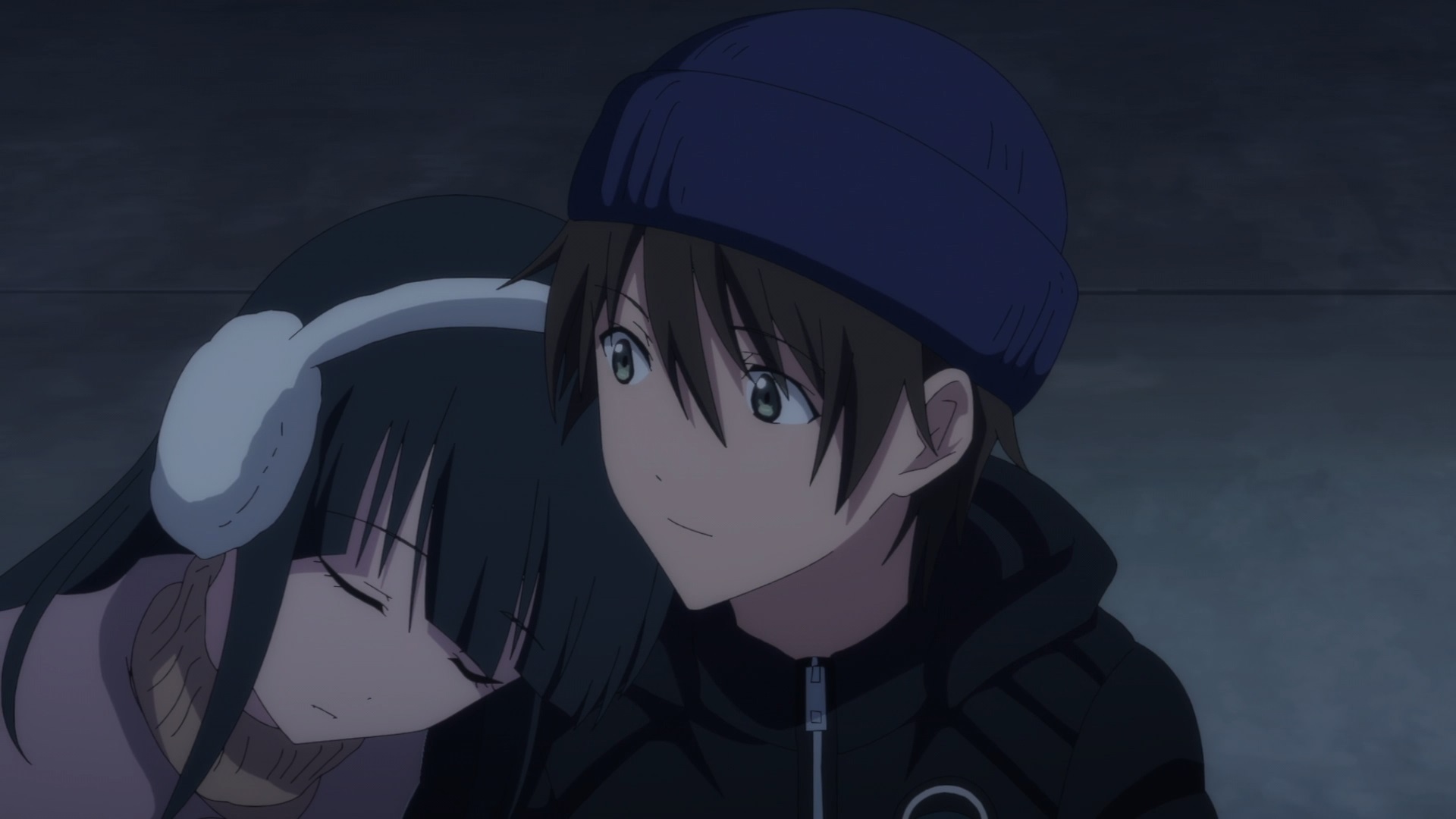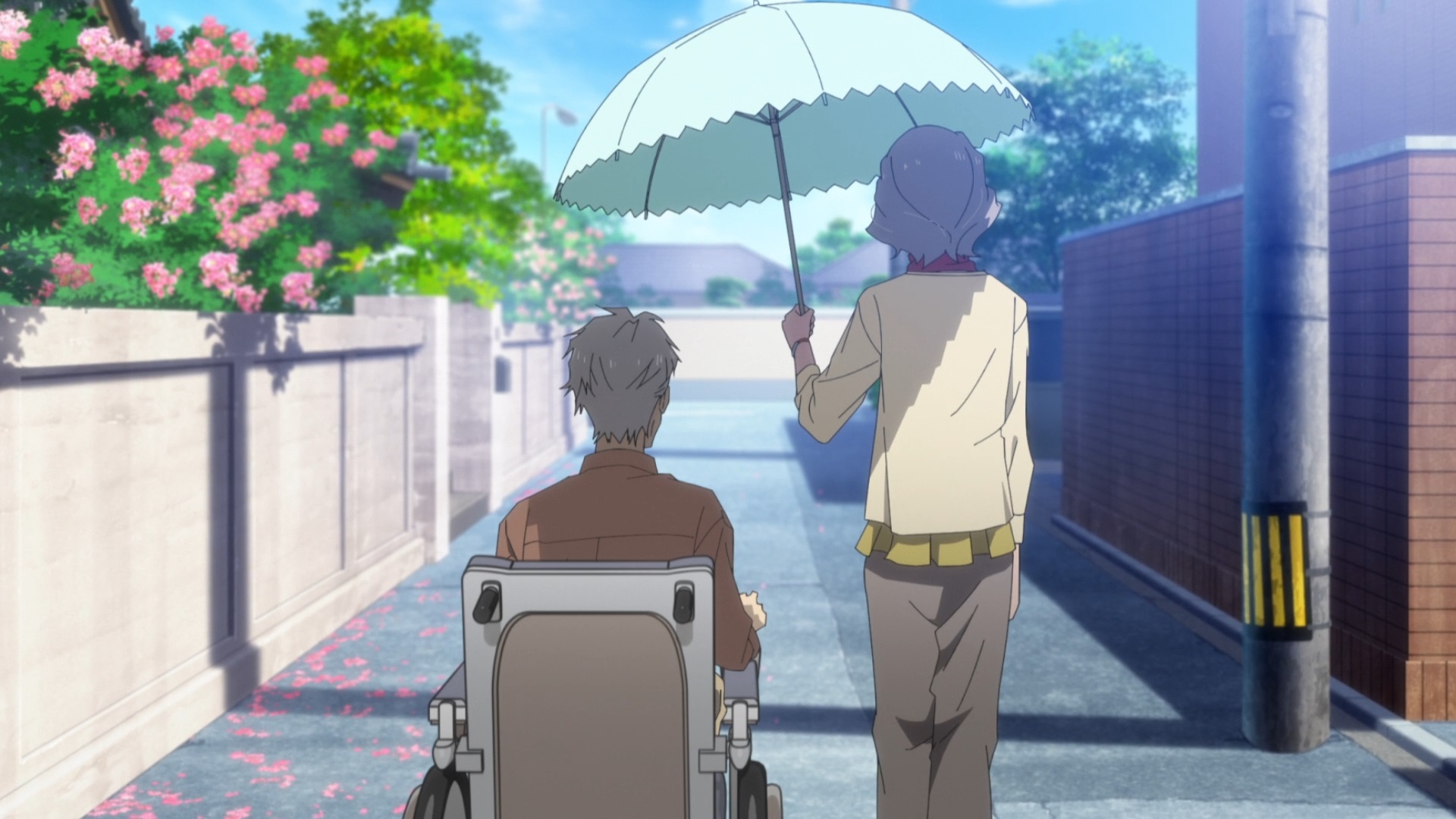
TYPE OF REVIEW ![]() : GOOD OL’ REVIEW
: GOOD OL’ REVIEW
MODERATE Spoilers

Right off the bat, if you’re wondering which of these two connected anime films to watch first, here’s what I think based on my experience. I decided to watch the “blue” movie (color based on poster) first. That is To Every You I’ve Loved Before. Then watched “To Me, The One Who Loved You” (the “red” movie) second. And it was fine. But if you are looking for a more chronological and perhaps easier-on-the-brain experience, definitely go with To Me, The One… first. Ether way, you’ll still get the same conflicted, bittersweet climax for our main characters.
Just ensure that you have about three and a half hours of free time to watch both films back-to-back.
But now let’s backtrack. Connected anime films? Yes! To Every You I’ve Loved Before (僕が愛したすべての君へ/Boku ga Aishita Subete no Kimi e) and To Me, The One Who Loved You (君を愛したひとりの僕へ/Kimi o Aishita Hitori no Boku e are adaptations of novels by Yomoji Otono.
Both follow the love stories of main character Koyomi though the idea of the Multiverse where every decision will create a separate world based on the choice made. Two of those worlds serve as the “home” worlds of each film. For Koyomi, he references the moment he decides whether to live with his mother or father post-divorce as the first major branching off point of his life.
In the not-too-distant future, the ability to “travel” between worlds and into the different version of yourself is commonplace. It can happen for just a second when you think you’ve misplaced something you’re looking for. Or those world shifting instances can last for hours and longer.
In To Every You I’ve Loved Before, the film first focuses on Koyomi growing up as more of a quiet loner due to his academic prowess. After having experienced a so-called Parallel Shift once before, he meets Kazune Takigawa in high school as she presents herself as someone from the 85th world from the one they one they are in. Turns out both Koyomi’s father and Kazune’s mother work at the science institute devoted to studying parallel worlds.
Koyomi and Kazune become friends and of course, romance develops between them as they grow up and eventually also work at the institute. But they will find themselves gaining more personal experience with parallel worlds in ways that bring about the moral, emotional and societal dilemmas that exist with the emerging theory.
The sci-fi touches are sprinkled throughout, especially when it comes to scenes of actual “Parallel Shifting” as well as very technical exposition about the ideas behind parallel worlds. But at its core, To Every You I’ve Loved Before is more of a slice of life romance.

The film opens with Koyomi in his old age before rewinding back to his birth and then following him through the seminal moments of his life and then coming back to where the film began. That journey, on its own, is fine. Even if the scientific jargon thrown around to explain the world traveling can come close to overwhelming.
The best thing to hold on to in this film is the relationships. That include Koyomi’s relationships with his family, namely his parents, grandparents and family dog. And of course Koyomi’s romantic relationship with Kazune. When things can get tuo convoluted with expository interludes, coming back to simple character moments helps to settle the film in a way that keeps it from getting too uncontrollable.
That said, in order to connect this film to To Me, The One Who Loved You, there are little inserts throughout that start right from the beginning until what can only be described as a sudden detour. One that feels like a highlight reel of some other movie.
And that it is. For me, watching To Every You I’ve Loved Before first and knowing it is intertwined with another film, I already got a sense of what To Me, The One Who Loved You would be about. And basically, it’s Koyomi’s love story with a completely different character, Shiori, and how a tragedy dictates what kind of life that version of himself will live.
After watching both films, I could see how one’s perception of the story could change depending on which you watched first.
First of all, watching To Me, The One Who Loved You first will probably allow a better understanding of how parallel worlds work. If the other film is a bit more character-driven, this one is much more plot-driven. There are much longer scenes of just whiteboard lectures about how parallel worlds exist and all the possible nuances about the theory you could include in a 90+ minute film.
The more character-focused plot of this film almost takes a backseat, even though it is supposed to be the driving force for this version of Koyomi as a character.
Though you get a pretty good sense of what’s at play after watching To Every You I’ve Loved Before (if you watched it first), To Me, The One Who Loved You fills in some of the blanks. But for me, doesn’t necessarily offer another perspective that it seems to want to do.

Bluntly, I could care less about Shiori as a character. But I suppose that has to do with the order I watched the movies.
The films, however, don’t touch upon the “What if?” angle of parallel worlds in a substantial way. And instead, particularly for To Me, The One Who Loved You, is all about finding a way to travel to a specific time and place.
These two films offer a unique and refreshing approach. Having essentially two parallel movies that can somehow fit together offers something different to what are familiar concepts and themes.
But at the same time, there is a feeling that each film on their own might have been held back by the need to weave them together. That in trying to ensure both work hand in hand, they instead take away and dilute each individual movie’s story.
You will definitely feel a bit unfulfilled if you only watch one of the two films. Maybe less so if you watch To Every You I’ve Loved Before which is able to stand on its own a little better than the other.
But even then, both films don’t really maximize the potential their unique premise and unique approach offers. Though you can feel reasonably satisfied after watching both films, there’s still a sense of being unfulfilled too.
Maybe that’s actually deliberate considering both endings are more bittersweet rather than either very happy or very sad. Perhaps completely merging both films into one instead, even if it means often hopping around worlds, would make for a more cohesive story.
Ultimately, it is the novelty of the two films that may be the main draw to them. The idea of getting to choose which film to watch first is actually quite clever. Especially when the main theme of both films is how every choice you make creates different outcomes and creates different worlds. That is very much the case here as depending on which film you watch first, it may positively or negatively affect your perception of the story and the characters.
Again, there is no “right” or “wrong” way to watch the films. You may never be able to take back your choice of which to choose. But (like the films mention at one point), even divergent paths can come close to meeting and crossing at some point in the future. With the films, either choice will still bring you to similarly bittersweet climaxes.

Overall, To Every You I’ve Loved Before and To Me, The One Who Loved You is a unique experience. One whose novelty may be enough to encourage you to try them out. But in the end, better execution could have made its story all the more meaningful and affecting. And instead, makes you wonder about the other worlds where the two films were able to come together in a stronger and better way.
Share:
Related posts ..
2 thoughts on “Good Ol’ Review: “To Every You I’ve Loved Before” and “To Me, The One Who Loved You””
Share your thoughts!Cancel reply
This site uses Akismet to reduce spam. Learn how your comment data is processed.

Good idea, poor execution.
Agreed.